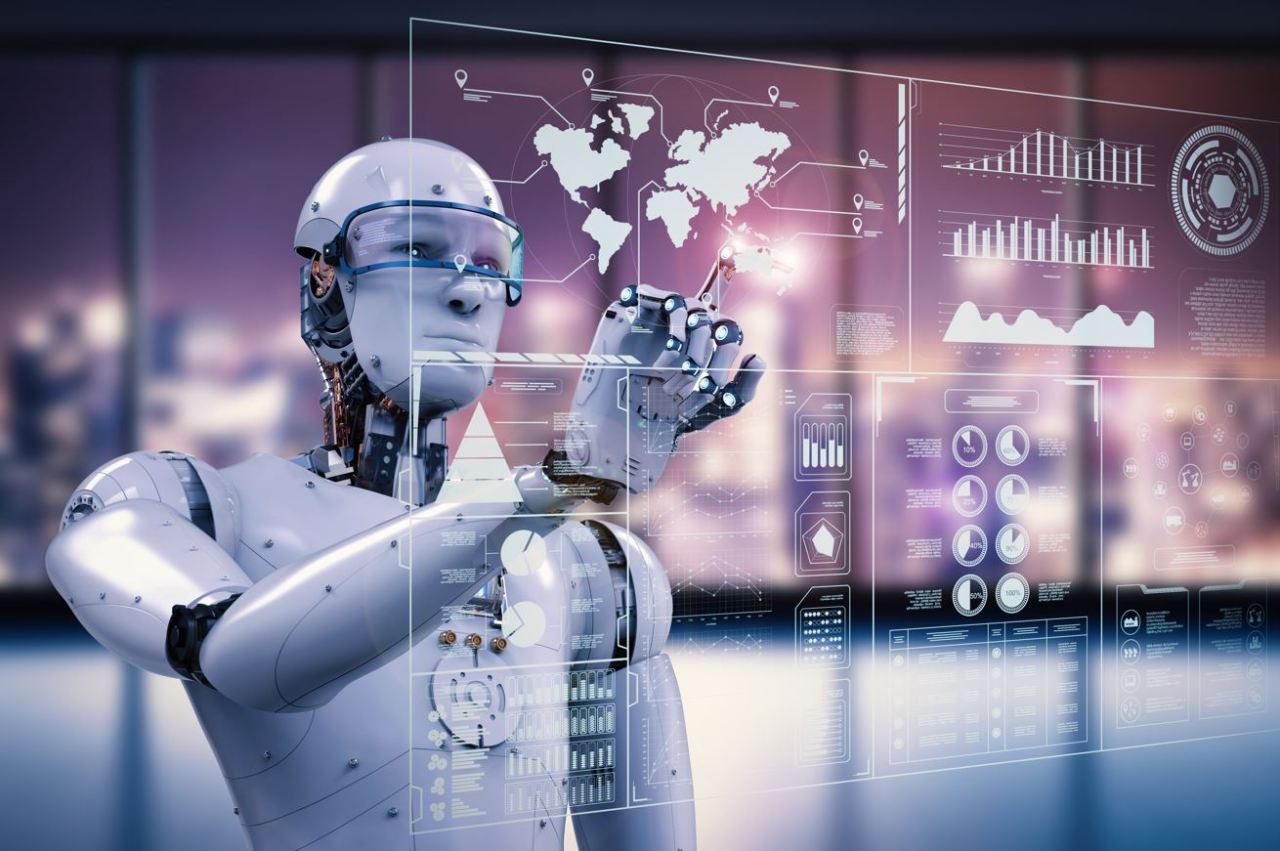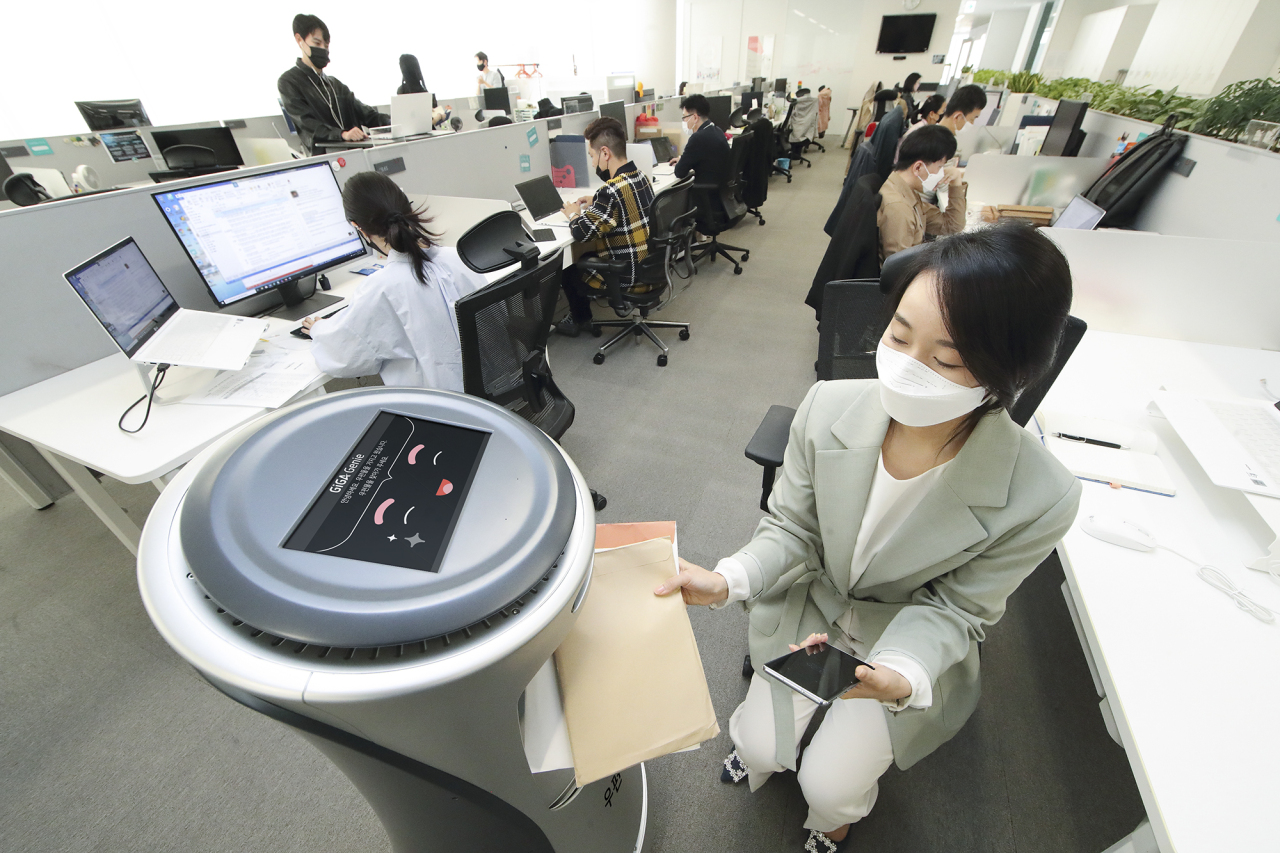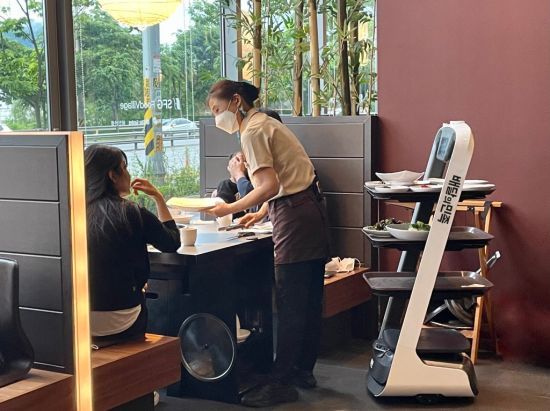 |
(123rf) |
The advent of intelligent humanoid robots depicted in sci-fi films is still thought to be a thing of the distant future, but more South Korean companies in a wide range of industries have begun to adopt simpler robots in a bid to remain competitive in the long term.
Not only telecom operators and search engines, but also tech startups that rely on online platforms are rushing to deploy robots in a bid to nurture the long-term potential of robots in connection with artificial intelligence, cloud computing and next-generation mobile technology.
While automated manufacturing robots have long been deployed here, online platform companies are looking to more advanced types that can generate new value when combined with other cutting-edge technology.
According to the Korea Robot Industry Promotion Agency, the domestic robot market was valued at 5.33 trillion won ($4.57 billion) in 2019. The Korean government, sensing signs of the uptrend, announced that it would help expand the robot market value to 20 trillion won by 2025.
The push for robotics by tech firms has gained stronger momentum since the start of the pandemic early last year, with people favoring contactless transactions to avoid coronavirus infections.
Korea’s telecom operators are keen to expand their robot-based businesses in an effort to utilize their massive infrastructure and subscriber bases. KT recently started selling service-purpose robots on its website, after it rolled out a 5G-based smart factory industrial robot that was jointly developed with Hyundai Robotics last year.
 |
KT showcases its artificial intelligence-based delivery service. (KT) |
KT said it would put together its 5G solutions and robotic technology in order to expand its share in the robot market targeting both industrial and service sectors.
In particular, KT is teaming up with local hotels after it successfully introduced an automated robot butler armed with an upgraded artificial intelligence voice assistant and tech solutions that include visual mapping. KT is now planning to apply the robot concierge technology to a new breed of robots to be deployed in other fields, such as mail delivery.
SK Telecom is also forging partnerships with startups and tech companies to incorporate its 5G network solutions into robots. In April, the country’s biggest mobile carrier rolled out a 5G-based disinfection robot at a local hospital, featuring a real-time location system and artificial intelligence-based facial recognition solution.
LG U+, a major mobile carrier, is developing a 5G-powered autonomous robot together with Unmanned Solution, a mobility company. The prototype of the robot showcased an ability to roam around in a designated area while carrying out safety procedures to check facility equipment. LG U+ said it would roll out new robots for various purposes, such as environmental management and virus protection.
 |
Delivery startup Baedal Minjok introduces its service robot. (Baedal Minjok) |
Baedal Minjok, a food delivery startup, made an entry into the robot industry faster than its rivals by unveiling a robot that plays a part in serving customers in 2019. The company is testing delivery robots in several areas in hopes of developing more advanced models that can be deployed in its delivery network. Baedal Minjok said a commercial version of the delivery robot might be launched as early as next year.
Naver, the country’s biggest search engine, is in a better position to utilize robotics technology. The tech giant has not only unrivalled market power, but also a wide array of advanced online platform solutions based on artificial intelligence.
It is Naver Labs that is spearheading research and development for the online platform heavyweight. Naver Labs, which started as an in-house research group in 2013 and was spun off from its parent firm in 2017, is now working on 5G autonomous robots that can be manipulated using the mobile network. In the process, Naver Labs developed an artificial intelligence robot cloud and applied for over 230 patents, including those related to cloud robot systems in a building.
Other tech companies are also interested in stepping into the quickly evolving robot market, even though the majority of companies that have invested in the field are yet to reap profits, as it takes time to develop robots and it is another matter to get other firms to deploy them for a fee.
Korea’s manufacturing companies, meanwhile, are showing interest in entering the budding robot market that can create more value with related tech solutions.
For instance, Hyundai Motor Group has been working with Boston Dynamics to develop more sophisticated robots in the logistics, construction and security fields.
By Yang Sung-jin (
insight@heraldcorp.com)










![[Today’s K-pop] Blackpink’s Jennie, Lisa invited to Coachella as solo acts](http://res.heraldm.com/phpwas/restmb_idxmake.php?idx=644&simg=/content/image/2024/11/21/20241121050099_0.jpg)